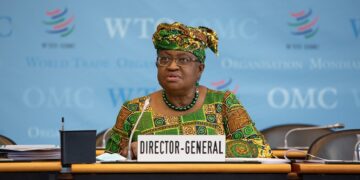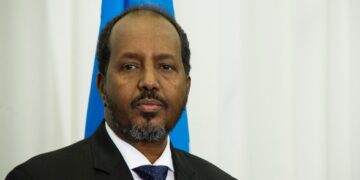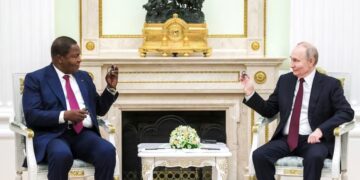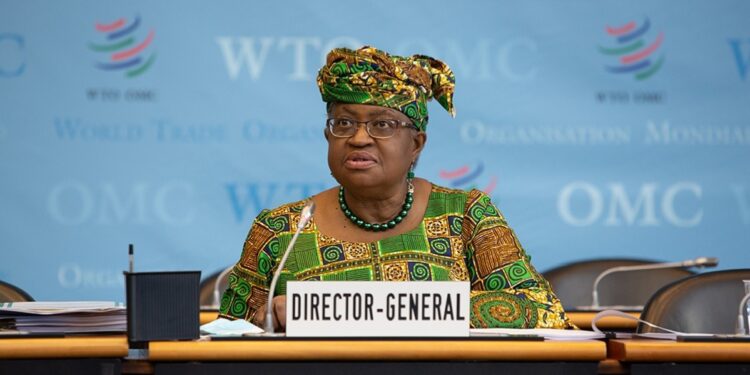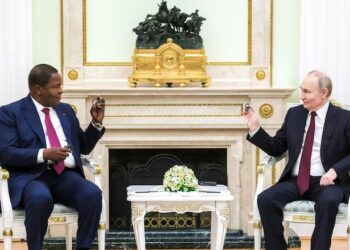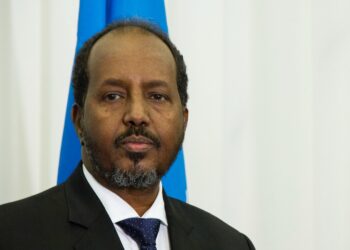By Enyichukwu Enemanna
The World Trade Organisation (WTO) says ongoing trade tension between the U.S and China could escalate and pose a threat to the growth output of global economy, calling for a cool-off between the two world’s largest economies.
“We’re obviously worried about any escalation in the U.S.-China tensions,” the Director General of Organisation Ngozi Okonjo-Iweala said in an interview published by Reuters at the weekend.
She warned that global economic output could be reduced by seven per cent over the longer term if scuffles continued, a concern that came after the WTO last week sharply lowered its 2026 forecast for global merchandise trade volume growth to 0.5 per cent from its previous estimate of 1.8 per cent growth in August. It cited expected delayed impacts from U.S. President Donald Trump’s tariffs.
The two sides had backed away from their first tariff escalation earlier this year, averting more serious consequences, she stated, hoping that this would happen again.
The WTO raised its forecast for global goods trade growth to 2.4 per cent for 2025, Reuters said. The forecasts were made before the relative calm of recent months between both countries were shattered last week when China imposed new export controls on rare earth metals needed for the technology sector.
In response, Trump imposed a new 100 per cent duties on Chinese imports starting next month.
“Similarly, we are really hoping that the two sides will come together and they will de-escalate, because any U.S.-China tensions and U.S.-China decoupling (would) have implications not just for the two biggest economies in the world, but also for the rest of the world,” the former Nigeria’s Finance Minister said.
She explained that both sides understood the importance of good relations, given the implications for the global economy and other countries.
Any kind of decoupling that divides the world into two trading blocs would result in “significant global Gross Domestic Product (GDP) losses in the longer term – up to 7 per cent global GDP losses and double-digit welfare losses for developing countries,” she said.
Okonjo-Iweala said she told officials from the Group of 20 major economies last week that there could be no global financial stability without global trade stability.
“Pressures on the system have not eased and may intensify,” she told the group. “The full effects of recent tariffs are still to be felt. Trade diversion is fueling protectionist sentiment elsewhere. And escalating tensions between the United States and China remain a serious risk.”
Okonjo-Iweala said she had a good meeting on Wednesday with Deputy U.S. Trade Representative Joseph Barloon, who was confirmed last week as the U.S. ambassador to the WTO.
She said she was very appreciative that the U.S. had removed the WTO from its list of planned spending cuts to international organisations, and efforts were underway to settle U.S. arrears to the trade body.
